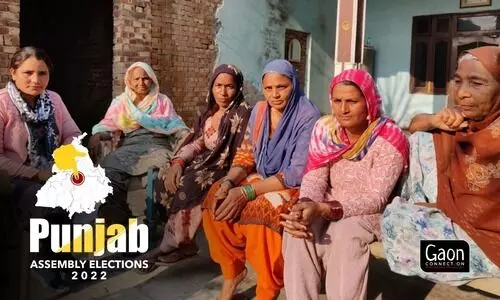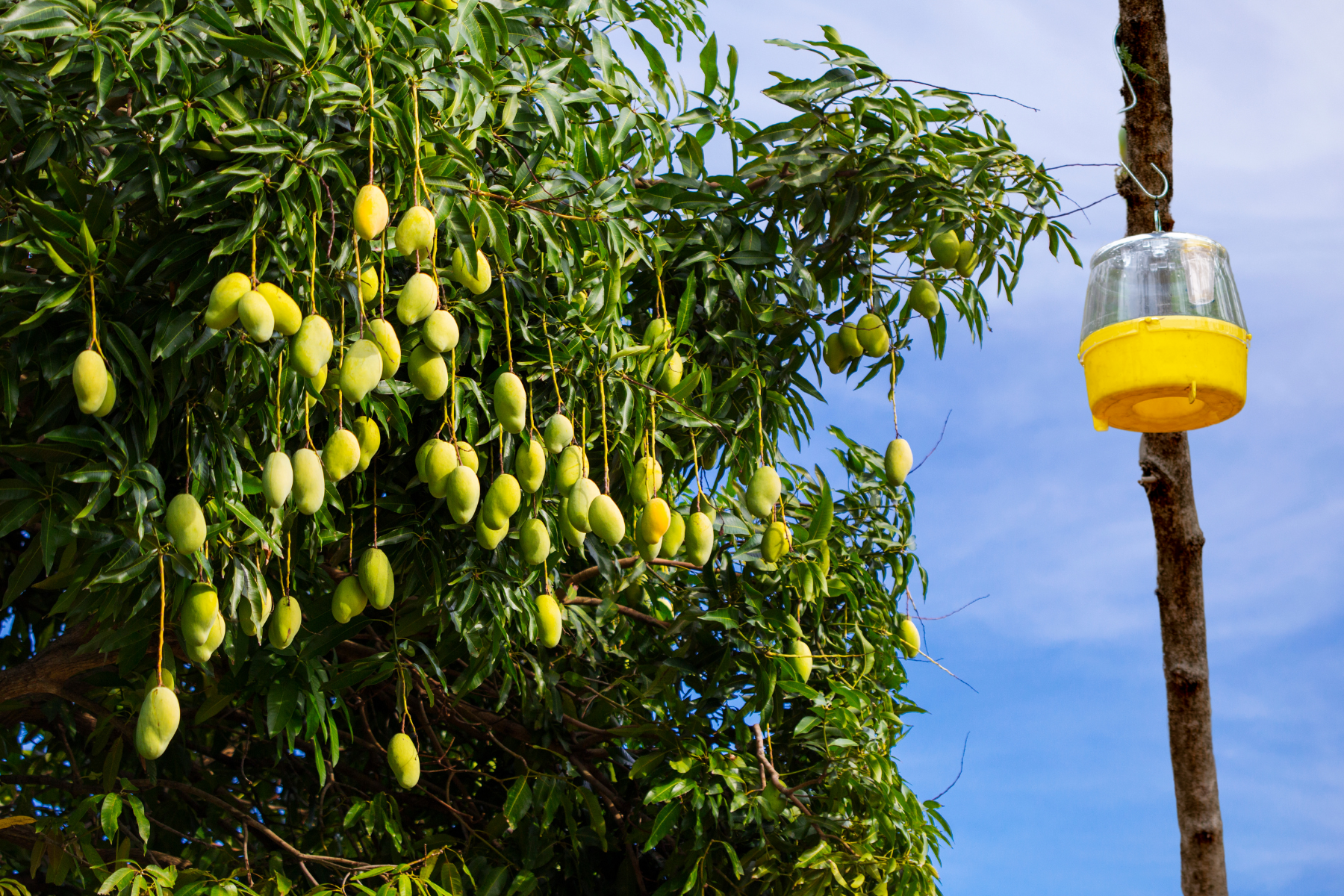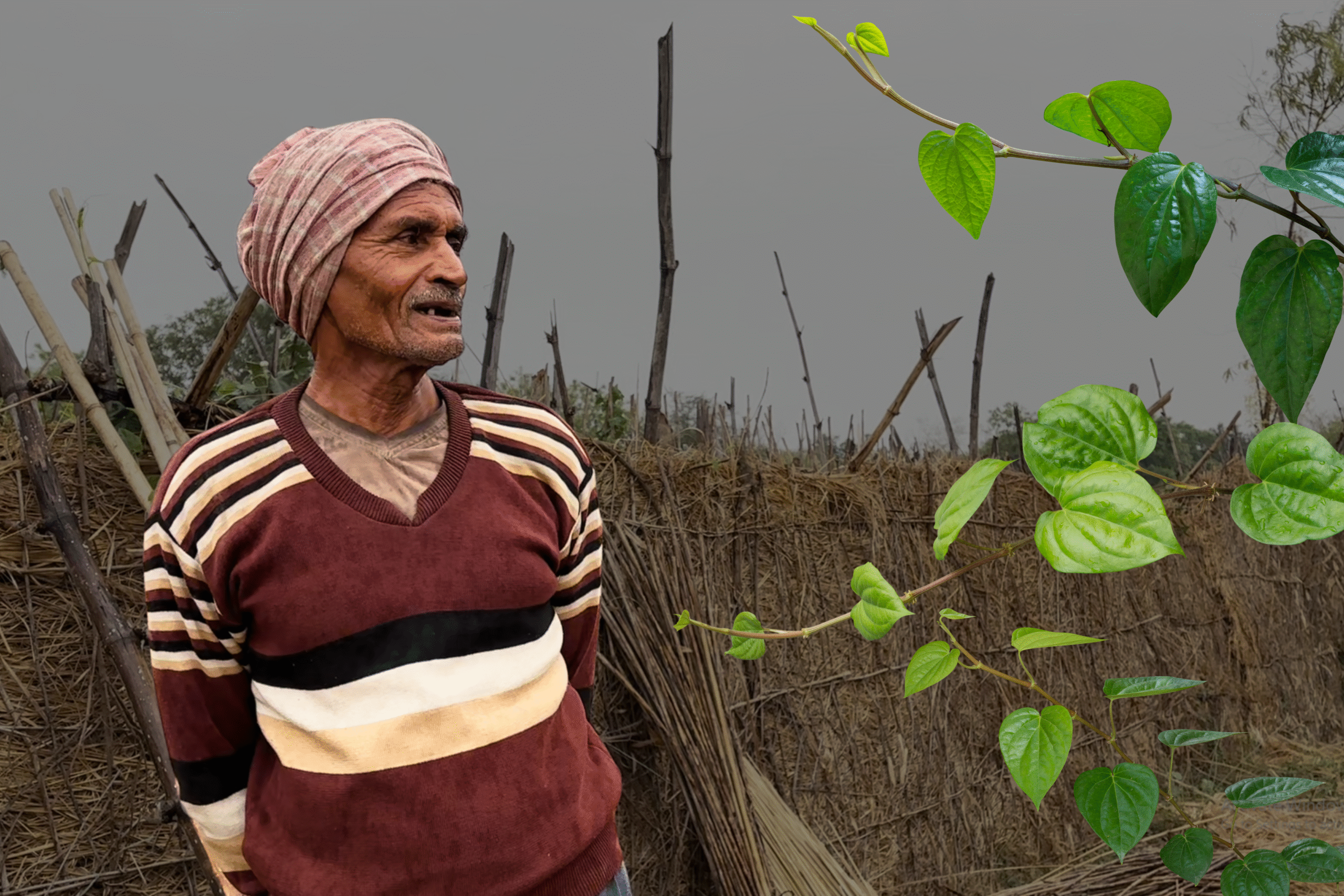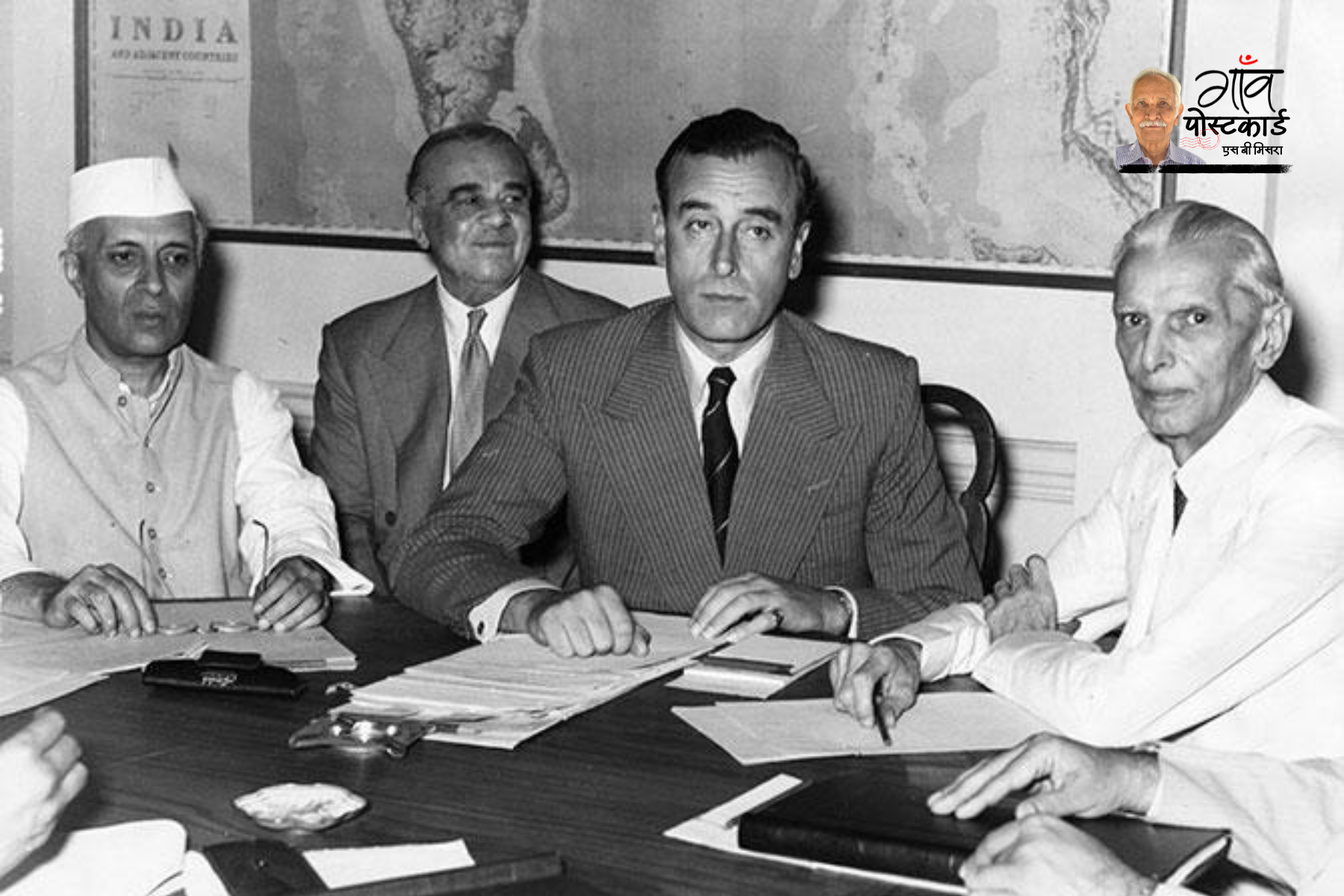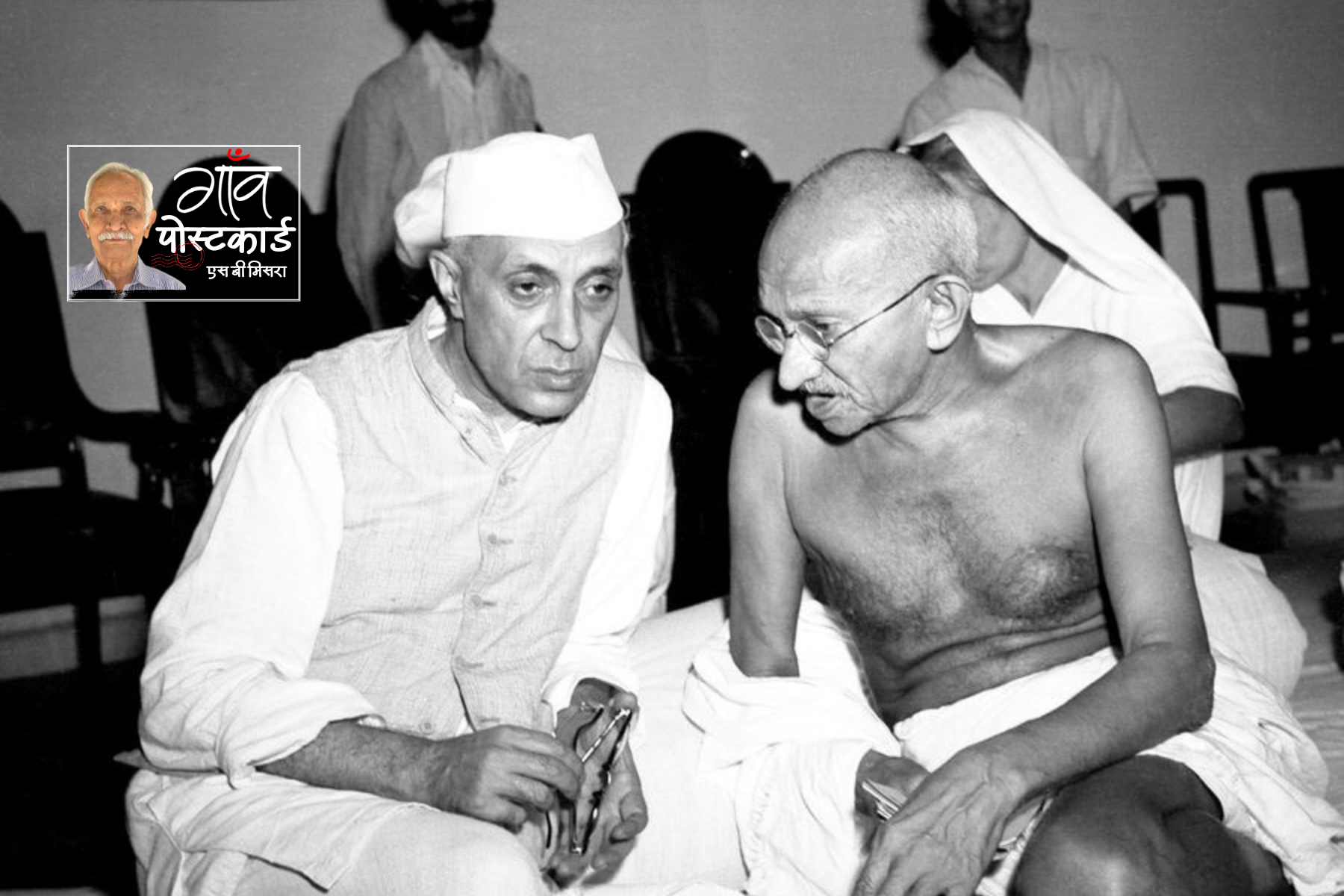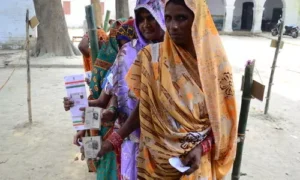Sangrur and Barnala (Punjab)
From electoral alliances and announcement of welfare schemes to the chief ministerial candidature, there is no denying the desperate political manoeuvring to lure the Dalit Sikh vote in Punjab as the assembly elections in the state get underway tomorrow, February 20.
The Dalit, which include the Ramdasia and Mazhabi Sikh communities, form nearly 32 per cent of the state’s population, and despite that, according to the Agriculture Census 2015-16, they own a mere 3.59 per cent of the land holdings.
Besides living in straitened circumstances, they are exploited, discriminated against and forced to exist on the fringes of society. Most of the Dalit communities in rural Punjab work as agricultural labourers, with barely a handful actually owning land.
“We face all kinds of issues. Neither the Akali (Shiromani Akali Dal) nor the Congress has given us anything,” Rani Kaur, a 45-year-old Ramdasia who lives in Barnala’s Ugoke village told Gaon Connection. A mother of a 15-year-old son, she works as a farm labourer and earns Rs 200 a day, and is the sole breadwinner of her family. “My husband was a drug-addict. My life is fraught with difficulties,” she said, adding that her husband has gone missing for the past several years.
While the wooing of Dalits continues with the chief minister of Punjab, Charanjit Singh Channi himself being a Ramdasia, the community at large holds out little hope for any improvement of their condition or status in the state.
“We don’t own any land. Because of lack of employment opportunities, our family members have to work on the lands of other farmers,” Kaka Singh, a Dalit Sikh from Khunda village in Hoshiarpur district, told Gaon Connection. “The political parties come to us during elections with the promise that they will solve our issues if we support and vote for them. But we don’t have any organisation or a representation who can speak on our behalf and for our rights,” he added.
There are laws in place to give land ownership to the Dalit Sikh communities in Punjab, but these mostly remain on paper. For example, the Punjab Village Common Lands (Regulation) Act, 1961, seeks to eradicate the staggering disparity in land ownership by reserving one-third of the panchayat (village council) land for Dalit Sikhs. However, on the ground, it is alleged that the upper castes bypass the law by proxy bidding.
Surjit Singh Swaich, the Punjab Congress spokesperson, agreed that there are issues with the implementation of land laws which are aimed at Dalit empowerment.
“It does happen that proxy bidding takes place and upper caste men take the hold of the land. We will try to ensure that the law is implemented strongly so that no one can misuse it in anyway,” Swaich promised.
Caste-based land inequality in rural Punjab
“Dummy bidding used to be a very common practice in our village. The upper caste farmers would collude with a Dalit farmer and get the land transferred to the their name, leaving us with no land,” Sukhwinder Kaur, a 60-year-old Dalit Sikh resident of Badrukha village in Sangrur district, told Gaon Connection. And this, she said, had effectively kept the community suppressed and impoverished for generations.
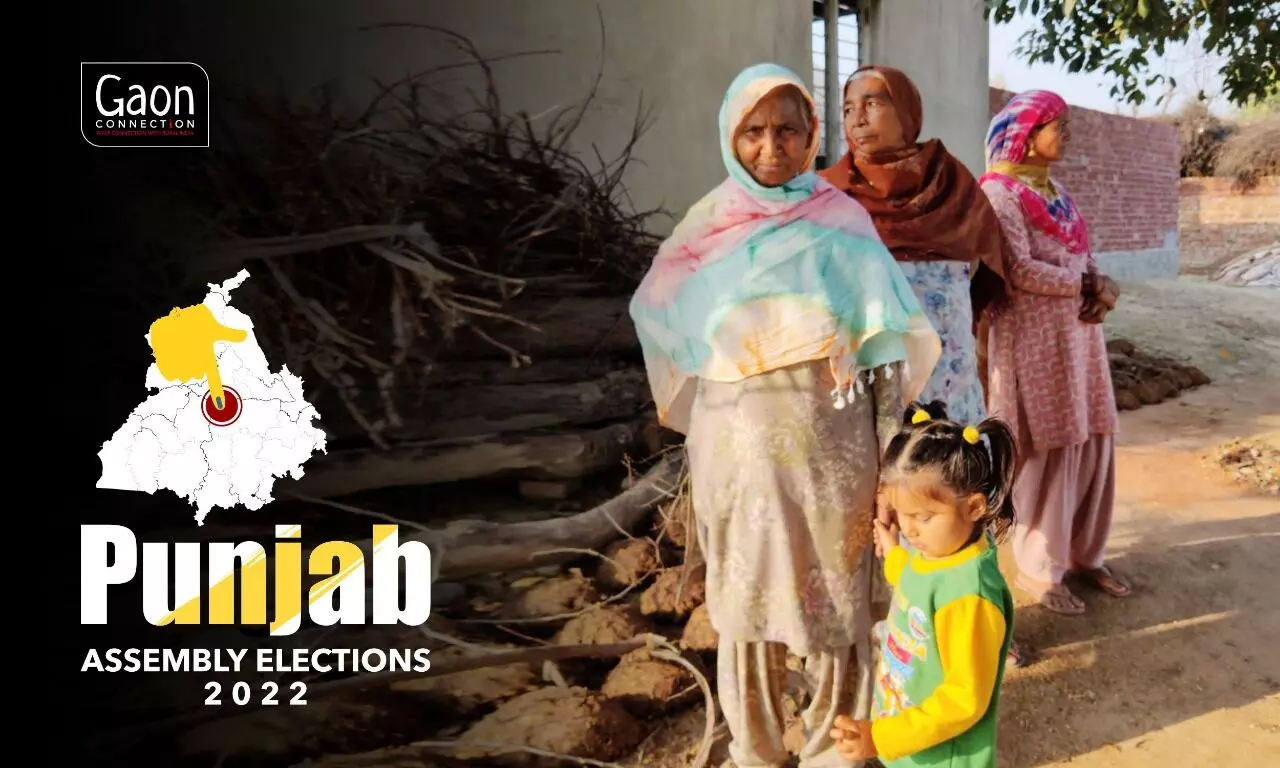
Apart from the law to end disparity in land ownership, the Punjab Land Reforms Act, 1972 stipulates maximum permissible irrigated land-ownership of 17 acres (almost seven hectares) only. But that is flagrantly flouted, said some Dalit Sikh farmers.
“In 1972, had the law been implemented then we would have been in a much better situation,” said Kaka Singh of Khunda village.
“Many farmers in the state own more than the permissible land limit. Excess land must be redistributed among landless labourers and farmers,” Bathinda-based Lachhman Sewewala, president of Punjab Khet Mazdoor Union, told Gaon Connection.
According to Sukhwinder Kaur, in the past few years there has been a shift. “Thanks to the efforts of the Zameen Prapti Sangharsh Committee (a movement that seeks to end land disparity in Punjab), there has been more transparency in panchayat land allotment in the last few years,” she said. Zameen Prapti Sangharsh Committee is a movement that seeks to end land disparity in Punjab, and campaigns for the access of Dalit cultivators to reserved common lands in the state.
However, Mukesh Malaudh, a Sangrur-based functionary of the Zamin Prapti Sangharsh Committee, insisted that
“Dalits are being deprived of their right to own lands. The influential Jats get their land on lease by fielding Dalit nominees,” he told Gaon Connection.
Talking about what his party has to offer for landless Dalits in the state, Jangveer Singh, the spokesperson of the Shiromani Akali Dal (SAD), told Gaon Connection that Dalits have always been at the forefront of all Akali Dal policies.
“We can’t change the laws of the land. Snatching land from one person and giving land to others to ensure equitable distribution of land means having either a dictatorship or a communist state. Whatever the law of the land states, we can only implement that since law is the same for everyone,” he said. However, the SAD spokesperson said that if voted to power, his party would ensure a couple of welfare schemes for landless Dalit labourers.
Elaborating on these Dalit Sikh welfare schemes, Jangveer Singh said: “One of the schemes is to give a five marla plot (about 126 square metres) to the Dalit Sikh family, and the other is constructing 5,000 houses in each constituency for people who are homeless.” The spokesperson went on to say: “We started these schemes and they have been going on for the past fifteen years. We are the first party to do it because the Congress has never done anything for Dalits.”
COVID-19 worsens situation for Dalit Sikhs
Deepak Kumar, a professor at the Department of Sociology and Social Anthropology in Punjabi University in Patiala, recently wrote a research paper titled COVID-19 Pandemic and the Scheduled Caste Workers in Rural Punjab: A Need for Structural Transformation, which underlined that in the aftermath of the COVID-19 pandemic, the situation in Punjab remains precarious for rural residents belonging to the Scheduled Caste due to inherent social strains in its socio-economic structure.
Kumar pointed out that unequal access to agricultural resources makes their condition more miserable as a class, and highlighted that the state’s focus on increasing productivity of land has overshadowed the question of land redistribution in the state.
“As long as the primary source of inequality is not addressed by political parties, all the subsequent developments will invariably keep adding layers to the existing structural inequality and deepen the existing divide further,” he wrote.
Struggling with substance abuse
It is not just poverty that Rani Kaur, a Ramdasia from Ugoke village, has had to contend with. Her life, she said, was hell ever since she could remember because both her father and her husband were drug addicts.
“My father was an alcoholic and a drug addict because of which my mother’s life was ruined. As a kid I had a rough childhood and when I grew up, I was married off to a drug-addict,” she told Gaon Connection. “My husband left home and still hasn’t returned. Forget about finding food day to day, even the slippers I wear are torn. Life is a daily struggle,” she added.
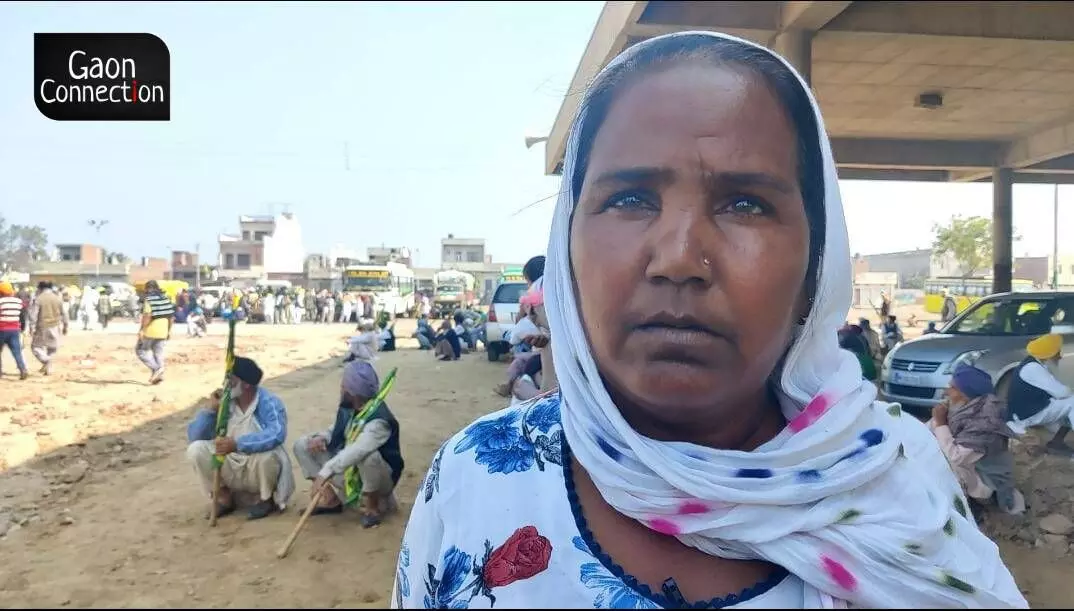
The Punjab Opioid Dependence Survey, which was conducted by the Union Ministry of Social Justice & Empowerment between February 2015 and April 2015, found that 232,856 people in the state were opioid (derivatives of opium) drug users.
The survey also found that 99 per cent of the drug addicts were males and 56 per cent lived in the rural areas.
Education, employment challenges among Dalit youth
Meanwhile, in the urban areas, Dalit youth are also unipressed by the campaigns of the mainstream political parties.
Jaspreet Kaur Jassu, a postgraduate student in Deshbhagat College in Sangrur district’s Dhuri, told Gaon Connection that none of the political parties is offering anything to any students, let alone Dalit students.
“Just a few days before the elections, they pay money to a few Dalit students who start campaigning in their favour. In reality, no one really cares about us. Even in colleges, they make the Dalit student leaders fight among themselves for their own electoral gains,” she complained.
The Dalit student emphasised how despite reservation policies for marginalised students, discriminiation was rampant.
“While it’s true that there’s reservation for Dalit students, the caste system is so intrinsic and ingrained that even when they go to cities to apply for jobs, they’re discriminated against,” the postgraduate student told Gaon Connection.
With inputs from Vivek Gupta, Chandigarh

